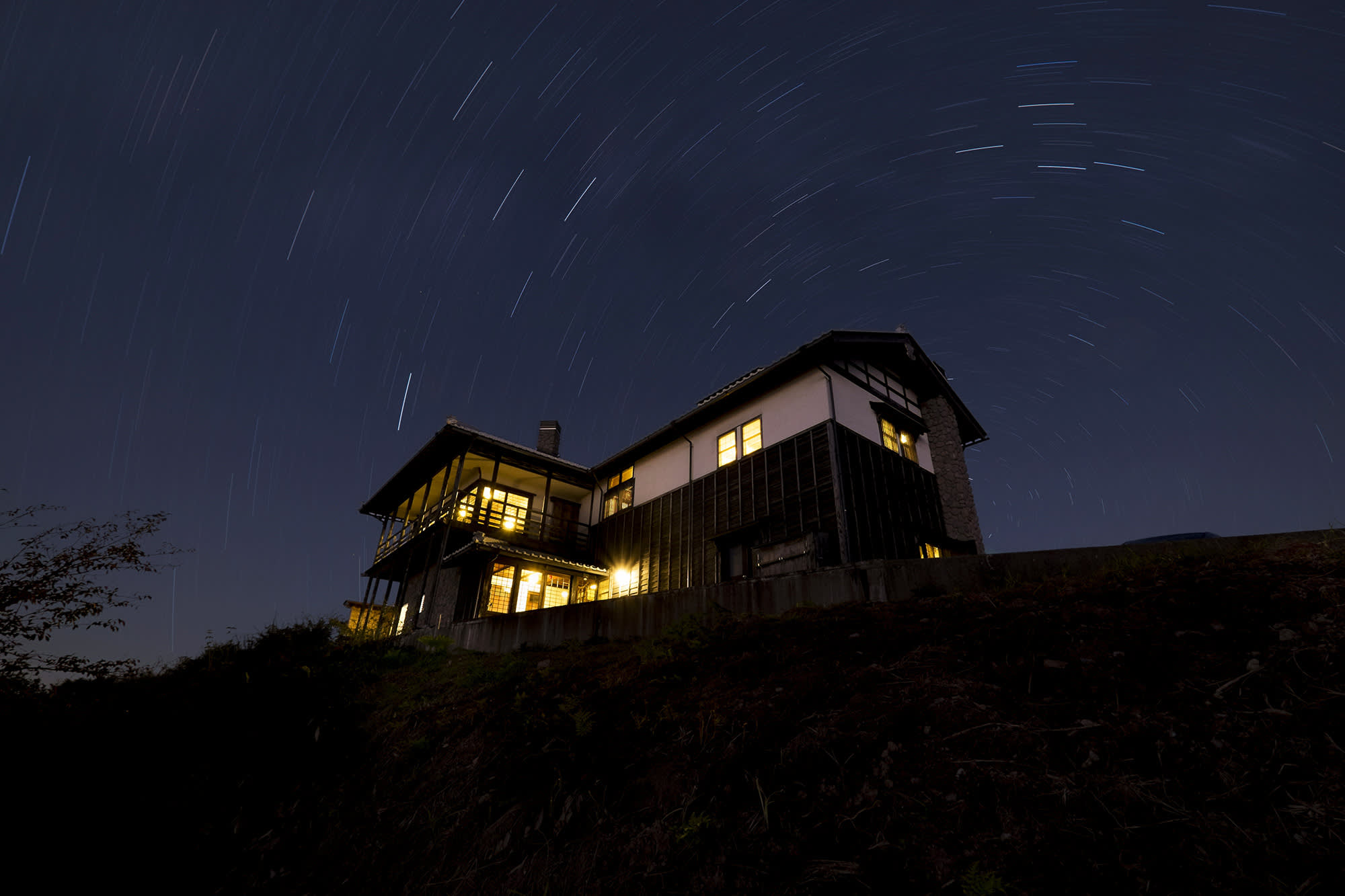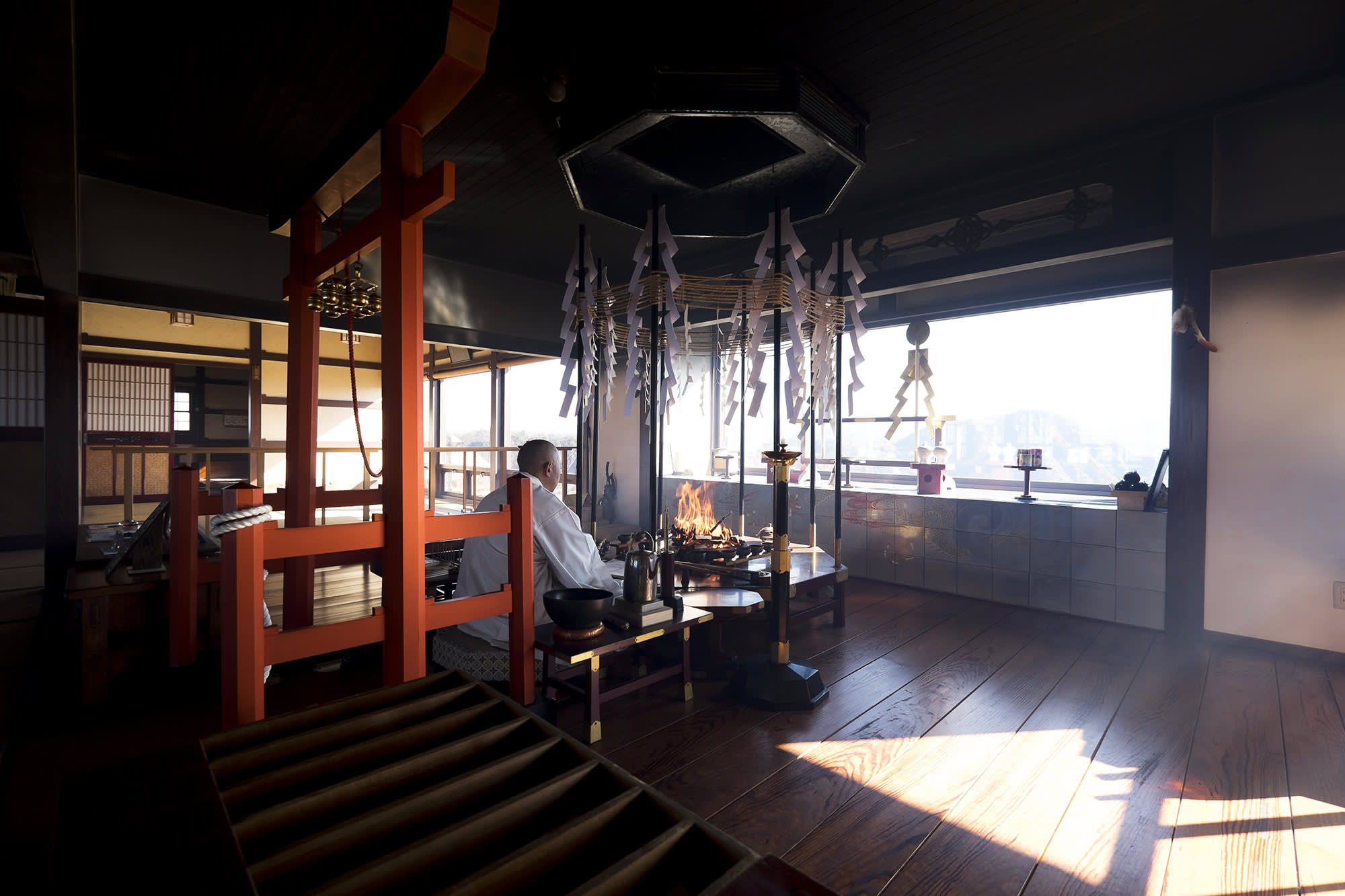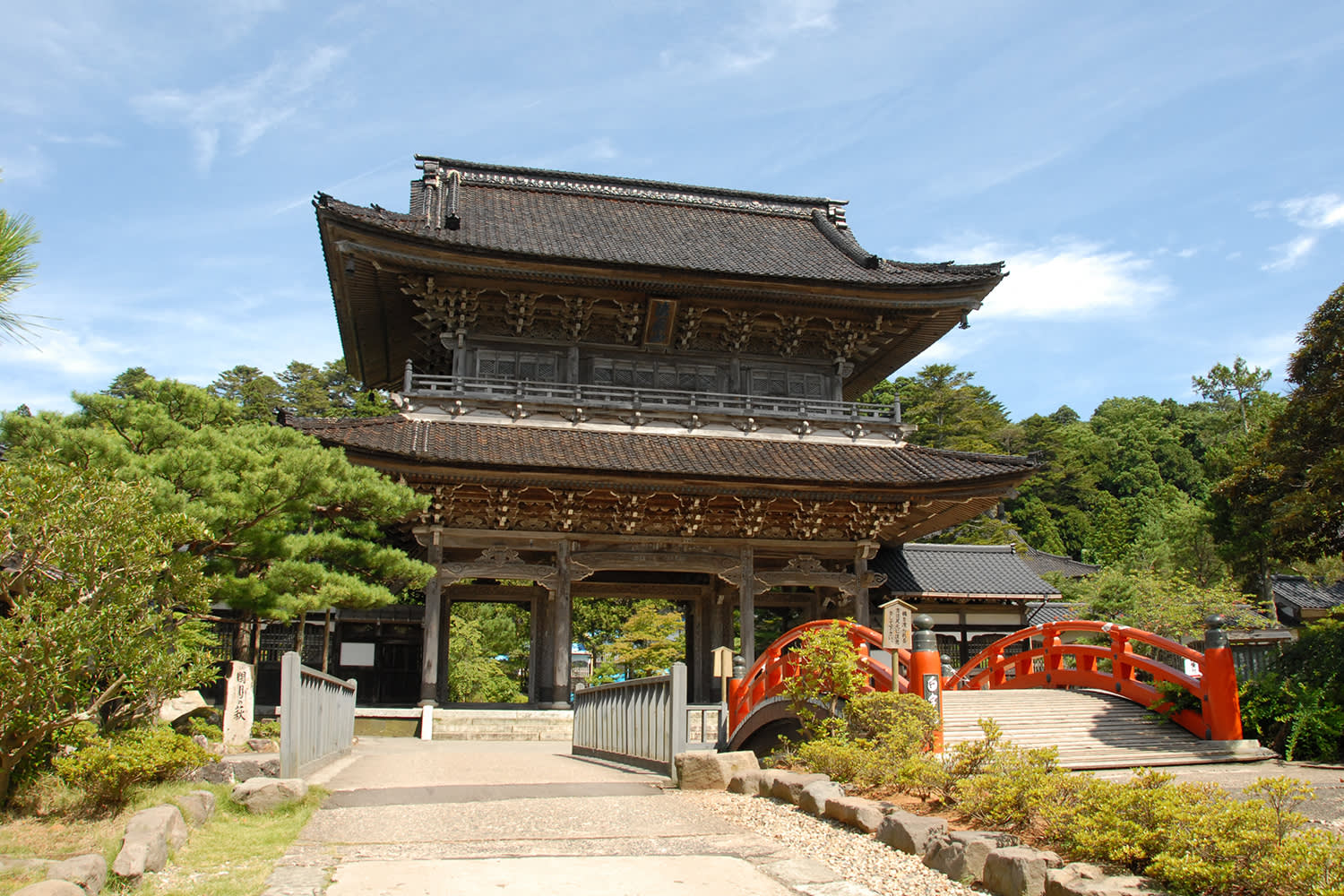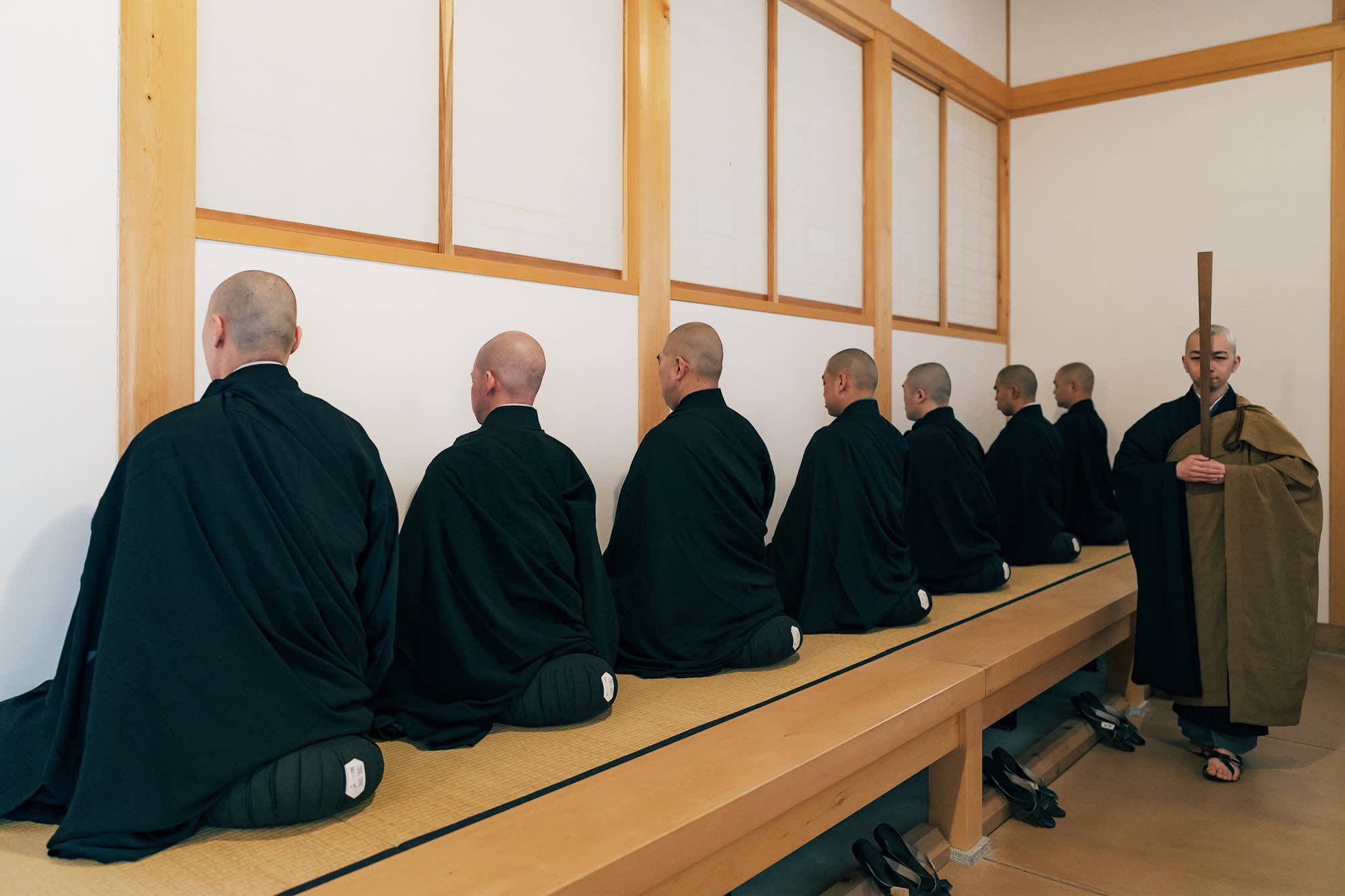Temple Stays 宿坊体験
Experience meditation, monastic life, and vegetarian Buddhist cuisine
Experience the daily life of Buddhist monks with an overnight temple stay called shukubo. Shukubo originally catered to traveling monks, but now many welcome international tourists looking to immerse themselves in traditional culture.
Sojiji Soin is a monastery on the Noto Peninsula that trains monks in the Soto school of Zen Buddhism. This monastery was established at the former location of Sojiji, a head Soto temple founded in 1321 by Zen master Keizan (1268–1325) that burned down in 1898. Visitors can experience life in a monastery with an overnight stay in one of the simple Japanese-style rooms with tatami floors. There are two options for temple stays: the Sanzan course, an authentic Zen training experience including a 4 a.m. wake-up call and participation in zazen (seated meditation), and the Haishuku course, which is more casual. Both courses include two vegetarian meals prepared according to Buddhist restrictions, and guests of both courses participate in morning scripture readings at 5 a.m. There is an option to try zazen even without staying overnight. One of the priests speaks English and German fluently, so easing any potential language barrier while visitors learn about Zen.
Ikumo is a shukubo run by Natadera, a temple in Komatsu. The Ikumo guesthouse has 360-degree views of Mt. Hakusan and the Sea of Japan. The facilities are eco-friendly, with solar power and an open-air bath using filtered rainwater. There are tatami rooms as well as Western-style bedrooms. A stay includes kaiseki-style (multi-course) breakfast and dinner with a menu that includes local seafood and meat dishes. Guests at Ikumo can experience gomadaki, a Buddhist fire ceremony. The fire ceremony performed at Ikumo honors Mt. Hakusan in a fusion of Buddhist, Shinto, and local nature worship. Ikumo is closed from mid-December through mid-March because of inaccessibility in winter.
Basic Information
Sojiji Temple and Monastery
Address
1-18 Monzen, Monzenmachi, WajimaHours
8:00 to 17:00Closed days
Open dailyFees
7,000 yen per night (2 meals included)Website
Ikumo
Address
20-13-14 Natamachi, KomatsuHours
9:00 to 17:00Closed days
Mid-December through mid-MarchWebsite





